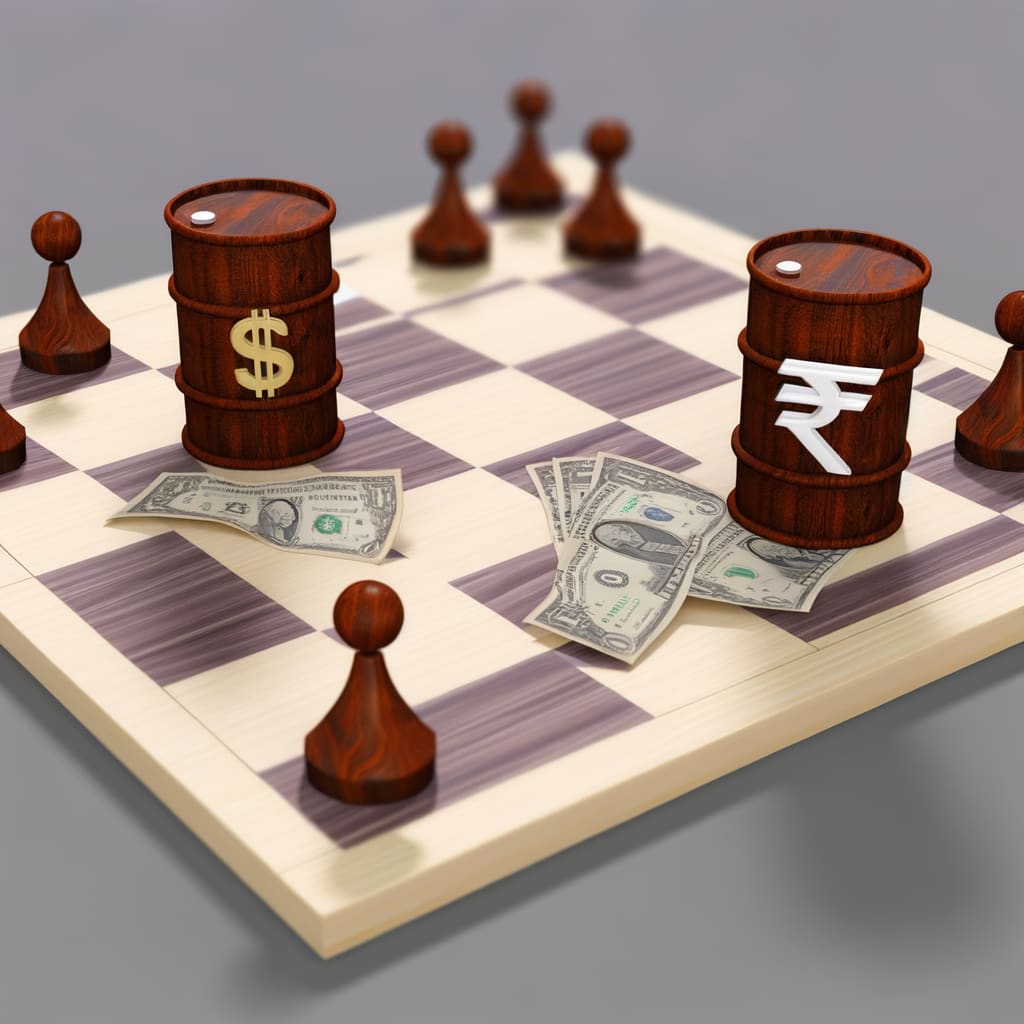US-India Tensions Rise Over Russian Oil Imports
In a significant shift in the dynamics of international relations, tensions have flared between the United States and India over the latter's continued purchase of Russian oil. US President Donald Trump recently announced a 25% tariff on goods imported from India, with further penalty
import taxes. The move has drawn strong reactions from India, with officials labeling the punitive measures as unjustified
and unreasonable.
Background and Context
India has been a major customer of Russian oil, capitalizing on lower purchase prices while Moscow seeks to fund its military operations in Ukraine. However, this trade dynamic has drawn the ire of the Trump administration. President Trump stated that the tariffs were imposed partly due to India's membership in BRICS and its continued trade with Russia, including selling Russian oil on the open market for significant profits.
Key Developments
India and Brazil have both rejected US demands to stop buying Russian oil, asserting their right to safeguard their national interests. The Indian Ministry of External Affairs spokesperson Randhir Jaiswal stated that India began importing from Russia because traditional supplies were diverted to Europe. Jaiswal also pointed out the hypocrisy of nations criticizing India for trading with Russia while maintaining their own trade relationships with Moscow.
In response to the US's tariff threats, a spokesperson for the Indian foreign ministry promised that India would take all necessary measures to safeguard its national interests and economic security.
Indian political scientist Pratap Bhanu Mehta emphasized the difficulty of trade negotiations with Trump due to his public threat tactics, which leave Indian Prime Minister Narendra Modi unable to compromise without losing face.
Implications and Reactions
India's continued resistance to US pressure has put a strain on the relationship between the two nations, with observers believing it to be one of the most significant challenges of recent decades. India's refusal to cease buying cheap Russian oil puts it in a bind between facing high tariffs or giving up a crucial resource.
Despite the tensions, India has remained resolute in its stance. According to Manish Tewari, a lawmaker in the Indian government, India has evolved to oppose anything that goes against its national interest.
This sentiment is echoed in the broader sentiment of strategic autonomy in India, as the nation insists on an independent foreign policy.
Conclusion
The escalating tensions between the US and India over Russian oil purchases have yet to reach a resolution. The US's tariff threats and India's staunch defense of its national interests indicate a significant rift in their relationship. Whether this will lead to a larger shift in global dynamics remains to be seen. Despite the pressure, India maintains that its purchases of Russian oil are legal, as they do not include oil from Iran or Venezuela, which are subject to US sanctions.

